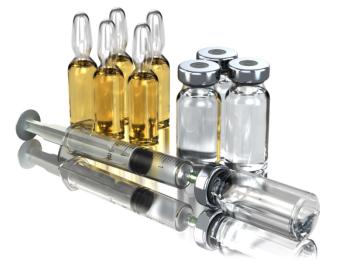
Biosimilars
Latest News
Latest Videos
CME Content
More News

Within a week of Sandoz applying for approval of it's biosimlar to Amgen's Neupogen, U.S. senators want the FDA to lay down guidelines on naming these drugs.

This week, a coalition of 32 major pharmacies, health insurers, unions and pension plans asked the FDA not to require distinct names for biosimilar medications, arguing that such a move would not compromise patient safety, but could undermine the savings that are expected to be generated as these medicines are introduced into the US health care system.

According to a report by Elsevier's BusinessIntelligence, UnitedHealthcare has announced that pharmacies that are participating in its Designated Specialty Pharmacy network will no longer redeem manufacturer-sponsored coupons as an offset to member cost-sharing payments for 6 specialty drugs beginning January 1, 2013.

Trade secrets may potentially be used to protect manufacturing processes for biological drugs--yet there is concern that the new law on biosimilars, the BPCIA (Biologics Price Competition and Innovation Act of 2009), and the accompanying FDA regulations, may expose trade secrets of both originators and biosimilar applicants.

In this video, Aimee Tharaldson, PharmD, Senior Clinical Consultant, Emerging Therapeutics Express Scripts, Inc, talks about the impact that biosimilar medications could potentially have on the specialty pharmacy market.

This content is brought to you by Amgen This video summarizes the complex process of creating biologics from start to finish and describes some of the unique challenges-- and tremendous effort-- involved in delivering safe and effective biologics.




With so many factors at play, it can be difficult to assess the true impact of generic drugs on healthcare costs.

As the FDA continues to work on the biosimilars approval process, there are growing concerns that a true cost-savings can't be realized.

A study of cost trends for tumor necrosis factor (TNF) inhibitors for rheumatoid arthritis (RA) after the entry of new competition showed that the newer drugs did not lower costs, and in fact, the annual treatment costs of the existing medicines rose by $17,390. Taxpayer funds shouldered all of the increases, and the “findings illustrate a market failure contributing to the rising costs of prescription drugs,” according to the researchers.

A study of cost trends for tumor necrosis factor (TNF) inhibitors for rheumatoid arthritis (RA) after the entry of new competition showed that the newer drugs did not lower costs, and in fact, the annual treatment costs of the existing medicines rose by $17,390. Taxpayer funds shouldered all of the increases, and the “findings illustrate a market failure contributing to the rising costs of prescription drugs,” according to the researchers.

A Canadian advisory council is recommending the use of biosimilars in a final report that lays out 60 recommendations for how the country can create a $15.3 billion (approximately US $11,408,521,500) universal, single-payer, public system for pharmaceutical coverage.

Korean drug maker Celltrion Healthcare recently presented new findings from a 2-part study at the Annual European Congress of Rheumatology 2019 meeting about subcutaneous biosimilar CT-P13 (Inflectra, Remsima).

The widespread adoption of telemedicine during the coronavirus disease 2019 (COVID-19) pandemic, as well as reimbursement parity that was enacted by CMS, should be continued once the public health emergency passes, according to a new position statement by the American College of Rheumatology (ACR).








